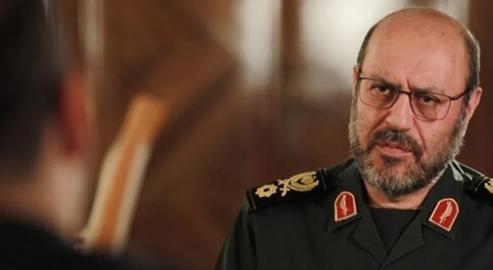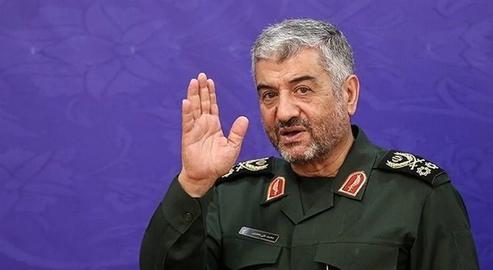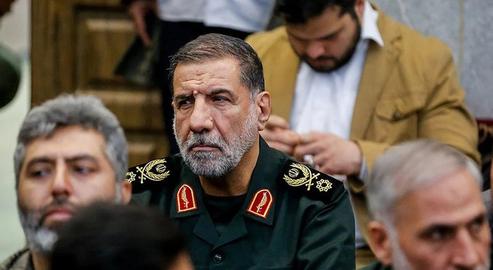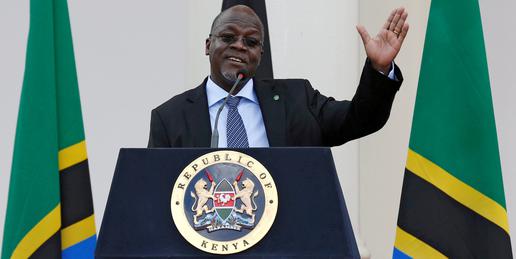Even those political pundits who support the regime in Iran do not foresee a high turnout in the June 2021 presidential election. Nevertheless, the upcoming vote is a hot topic among conservative analysts. Currently, their favorite candidates are all either members of the Islamic Revolutionary Guard Corps (IRGC) or are publicly supported by the Guards.
In recent days, one IRGC general has launched his presidential campaign, while another joined his colleagues in categorically rejecting the legal argument that members of the military cannot run for office. The latter claimed that standing for election is a “citizen’s right” of the military.
IRGC commanders no longer keep their intentions to run for political office a secret. Flouting an explicit ban by Ayatollah Khomeini, the founder of the Islamic Republic, on the involvement of the military in politics is not only no longer a taboo, but has become a matter of little consequence.
The Strange Notion of “Citizens’ Rights”
Hossein Dehghan, a former Revolutionary Guards general and former Defense Minister who is now an advisor to Supreme Leader Ayatollah Khamenei, is one of the senior military figures who publicly declared his intention to run in the presidential election some time ago. “Just as voting is a citizens’ right for the military, their candidacy for any elected role is also their citizens’ right,” he tweeted on March 9.
In the past few years the classic argument put forward for ignoring the ban on the military from politics has been “When a member of the military retires or resigns, he is no longer a military man and can therefore enter politics.” Regardless of the merits of this argument, it has proven meaningless in practice. Esmail Kosari, for example, who for years served a senior commander of the IRGC, was elected twice to the parliament, but stepping down he donned his military uniform again and was appointed as the commander of Sarollah Headquarters in Tehran: the most important IRGC security operations center.
Hossein Dehghan’s argument, however, is both flimsier and stranger, first because of his confused understanding of the concept of “citizens’ rights” and, second, because of the amazing equivalence he puts forward between voting and being elected.
The Change in the Argument
The argument by Hossein Dehghan is also a clear illustration of how the ban on the military from entering politics has gone from an absolute red line to a mere trifle.
Back in 2007 it was enough for General Mohammad Ali Jafari, then the commander-in-chief of IRGC, to say that the paramilitary Basij “must support principalists” in the elections to the parliament for a huge public controversy to erupt. This officer was roundly criticized for a single uttered sentence. But in the past two years, similar and far weightier statements have been made, and each time the responses have been less and less vehement and fewer in number.
The latest case was that of Revolutionary Guards General Esmail Kosari, who said in November 2020 that people should not be afraid of a president originating from the ranks of the Guards and accused those who were against it of “psychological warfare” against the IRGC.
Overturning Khomeini’s Edict
The ban on members of the military from entering politics is an accepted principle in all countries with a civilian government. But in the Islamic Republic this became law because Ayatollah Khomeini expressly forbade it. On several occasions Khomeini talked about the “corrupting” consequences of the military in politics, and in his last will and testament, the first Supreme Leader again emphasized: “The armed forces, be it the military, the police, the Guards, the Basij or others, must not join any party or political group and must stay away from politics.”
Following Khomeini’s repeated statements to this effect, the ban was expressly included in subsequent laws governing the military, including Article 40 of the Armed Forces Penal Code, Article 47 of the IRGC’s charter, Article 16 of the IRGC’s Recruitment Law, Article 29 of the Army Regulations and Article 16 of Police Recruitment Law.
After Ayatollah Ali Khamenei took over, however, he adopted a more relaxed approach and has only ever paid lip service to the memory of his predecessor in this regard. The taboo about lasted into mid-1990s nonetheless. But little by little, it has lost ground. An example was when a group of 24 IRGC commanders wrote a threatening letter to the reformist President Mohammad Khatami, cited as a stark instance of illegal military intervention in politics.
In the years that followed, this interference increased considerably. But IRGC commanders still felt compelled to adhere to Khomeini’s explicit ban, and to somehow justify their incursions into the political arena. These justifications have gradually been replaced by bolder assertions. At first, senior IRGC figures argued that what Khomeini meant was that a military officer must first resign before he can declare his candidacy. Then, they changed their tune, and said that Khomeini had only meant “during wartime”.
No Competition, Low Turnout
The presence of the IRGC in politics has become more public and more pronounced since the early 2000s. The appointment of General Alireza Afshar as the head of the National Elections Headquarters during the first term of President Mahmoud Ahmadinejad caused vast controversy, but the opposition gradually died down, so much so that now Mohammad Bagher Ghalibaf is now the parliament’s spokesman with nary an outcry. Furthermore, around two-thirds of the parliament’s steering committee is now made up of former commanders of the Guards or the Basij.
The IRGC already has a stranglehold on Iran’s macro-economy and now wants a monopoly on its political sphere as well. There have been unconfirmed reports that Speaker Ghalibaf might run for president, but besides him, there are other likely candidates for presidency issuing forth from the ranks of the Guards: Hossein Dehghan, who was once the commander of IRGC’s air force, Saeed Mohammad, who until a few days ago was the commander of the Guards’ Khatam al-Anbiya Construction Headquarters, Ezzatolah Zarghami, a former IRGC general and the former head of Islamic Republic of Iran Broadcasting (IRIB), and Parviz Fattah, another former IRGC commander.
There are some other names being floated who have close ties with the Revolutionary Guards and, depending on the situation, might even become IRGC’s main candidate. They include Saeed Jalili, the former nuclear negotiator and former secretary of the Supreme National Security Council, Mohammad Mokhber, president of the Executive Headquarters of Imam's Directive, Mohammad Qomi, head of Islamic Development Organization, Ali Nikzad, an MP and former Minister of Transportation, and Alireza Zakani, a former MP.
The next presidential election in Iran is scheduled for June 18 this year, and the new president is usually inaugurated in August.
Related Coverage:
Could the Next President of Iran be a Revolutionary Guard?
The Militarization of Iran’s Presidency: The IRGC and the 2021 Elections
Weekly Khamenei Report: A Job Description for the Next "Young Revolutionary" President
visit the accountability section
In this section of Iran Wire, you can contact the officials and launch your campaign for various problems



























comments